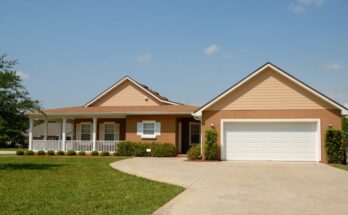Introduction
Government-backed mortgage programs offer significant opportunities for individuals and families to secure home financing with favorable terms and conditions. These programs, including FHA, VA, and USDA loans, are tailored to meet the needs of specific groups, such as first-time homebuyers, veterans, and residents of rural areas. This article delves into the benefits, eligibility criteria, and specific features of these government-backed loan programs, helping you understand which option might be the best fit for your home buying needs.
FHA Loans: Accessible Options for First-Time Homebuyers
Key Features of FHA Loans
The Federal Housing Administration (FHA) loans are particularly popular among first-time homebuyers and those who may have limited savings for a down payment. Here’s a closer look at what makes FHA loans an attractive choice:
- Low Down Payment Requirements: One of the most significant advantages of FHA loans is the low down payment requirement. Borrowers can secure a loan with as little as 3.5% down, which is considerably lower than the typical 20% required for conventional loans. This lower threshold makes homeownership more accessible, especially for individuals who are just starting to build their savings.
- Flexible Credit Score Requirements: FHA loans are known for their lenient credit score requirements. While conventional loans typically require a higher credit score, FHA loans often accept scores as low as 580. This flexibility allows more people, including those with past credit issues, to qualify for a mortgage.
Pros and Cons of FHA Loans
Pros:
- Lower Down Payment: The low down payment requirement makes it easier for first-time buyers to enter the housing market without needing a large savings reserve.
- Easier Credit Qualification: The lenient credit requirements allow individuals with lower credit scores to qualify for a mortgage.
- Competitive Interest Rates: FHA loans often offer interest rates that are competitive with those of conventional loans, providing cost savings over the life of the loan.
Cons:
- Mortgage Insurance Premiums (MIP): FHA loans require the payment of mortgage insurance premiums, both upfront and annually, which can increase the overall cost of the loan.
- Loan Amount Limits: There are limits on how much you can borrow with an FHA loan, and these limits vary by geographic location, which might restrict your purchasing options.
Eligibility Requirements
To apply for an FHA loan, you must adhere to certain requirements:
- Credit Score: A minimum credit score of 580 is required to qualify for the 3.5% down payment option. If your score is between 500 and 579, you may still qualify, but you’ll need a 10% down payment.
- Debt-to-Income Ratio: Typically, your debt-to-income ratio should not exceed 43%, although exceptions can be made for borrowers with significant savings or other favorable financial factors.
- Property Standards: The home you intend to purchase must meet certain safety, security, and habitability standards. An appraisal will be conducted to ensure the property meets these requirements.
Who Should Consider FHA Loans?
FHA loans are ideal for first-time homebuyers or individuals who may not qualify for conventional loans due to lower credit scores or limited savings for a down payment. They provide a more accessible path to homeownership for those who need flexible borrowing terms.
VA Loans: Exclusive Benefits for Veterans and Military Personnel
Key Features of VA Loans
VA loans, offered by the Department of Veterans Affairs, provide substantial benefits to veterans, active-duty service members, and eligible surviving spouses. Here’s what makes VA loans a standout option:
- No Down Payment Required: One of the most attractive features of VA loans is that they often do not require a down payment. This feature significantly lowers the barrier to homeownership, making it easier for veterans and service members to buy a home without needing substantial upfront funds.
- No Private Mortgage Insurance (PMI): Unlike conventional loans that typically require PMI when the down payment is less than 20%, VA loans do not require PMI. This can lead to significant savings in monthly mortgage payments.
Pros and Cons of VA Loans
Pros:
- No Down Payment: Eliminating the need for a down payment reduces the initial financial burden on borrowers.
- No PMI: The absence of PMI lowers overall monthly costs and makes homeownership more affordable.
- Competitive Interest Rates: VA loans generally offer lower interest rates compared to conventional loans, which can save borrowers a considerable amount of money over the life of the loan.
Cons:
- Funding Fee: VA loans require a funding fee, which can be financed into the loan or paid upfront. This fee helps support the VA loan program but adds to the overall loan cost.
- Primary Residence Requirement: VA loans are restricted to primary residences, meaning they cannot be used for vacation homes or investment properties.
Eligibility Requirements
To qualify for a VA loan, the following criteria must be met:
- Service Requirements: You must be an active-duty service member, a veteran, or an eligible surviving spouse. A valid Certificate of Eligibility (COE) is required to prove your eligibility.
- Credit Score: While the VA does not set a minimum credit score requirement, most lenders prefer a score of at least 620.
- Primary Residence: The property must be used as your primary residence, meaning you must live in the home full-time.
Who Should Consider VA Loans?
VA loans are an excellent choice for veterans and currently serving military members, offering significant savings and benefits, thereby making homeownership more feasible and cost-effective for our service members
USDA Loans: Accessible Housing Solutions for Rural and Suburban Dwellers
Key Features of USDA Loans
The United States Department of Agriculture (USDA) offers loans specifically designed for homebuyers in rural and suburban areas. These loans are intended to help low- to moderate-income families achieve homeownership. Key insights on USDA loans are as follows:
- No Down Payment Required: USDA loans provide 100% financing, meaning you can purchase a home without a down payment. This makes them an excellent option for buyers who may not have substantial savings.
- Low Mortgage Insurance Costs: The mortgage insurance costs for USDA loans are generally lower than those for FHA loans, reducing the overall cost of the loan.
Pros and Cons of USDA Loans
Pros:
- No Down Payment: The 100% financing feature eliminates the need for a down payment, making it easier to purchase a home.
- Lower Mortgage Insurance: Reduced mortgage insurance costs can lead to lower monthly payments and savings over time.
- Competitive Interest Rates: USDA loans often offer interest rates that are competitive with those of conventional loans, providing additional savings.
Cons:
- Geographic Restrictions: USDA loans are only available for properties located in designated rural areas, which may limit your options depending on where you want to live.
- Income Limits: There are income limits based on location and household size, which means not everyone will qualify for a USDA loan.
Eligibility Requirements
To be eligible for a USDA loan, you need to meet specific criteria:
- Property Location: The home must be located in an eligible rural or suburban area, as defined by the USDA.
- Income Limits: Your household income must not exceed 115% of the area median income for your location.
- Credit Score: A minimum credit score of 640 is typically preferred by lenders, although some may accept lower scores with additional verification of creditworthiness.
Who Should Consider USDA Loans?
USDA loans are ideal for homebuyers looking to purchase in rural or suburban areas. They offer an affordable path to homeownership with no down payment requirement and lower mortgage insurance costs, making them an attractive option for eligible buyers in these regions.
Conclusion
Government-backed mortgage programs such as FHA, VA, and USDA loans offer diverse and valuable opportunities for homebuyers to secure financing with favorable terms and conditions. Whether you’re a first-time buyer, a veteran, or looking to purchase a home in a rural area, these programs provide tailored benefits to meet various needs. Understanding the features, advantages, and eligibility requirements of each program can help you make an informed decision and take advantage of the best mortgage options available to you. By choosing the right program, you can achieve your homeownership goals while enjoying the financial security and support provided by these government-backed loans.




This is indeed a very insightful post.
Thanks for sharing.